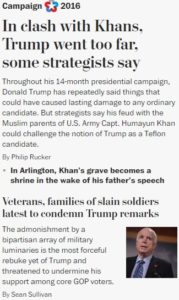From Breitbart in 2012:
A new, self-published book [Barack O’Liberal] by “pragmatic libertarian” Alan R. Lockwood claims that Barack Obama, while brilliant, may have entered Harvard Law School in the bottom 20% of his class, based on mediocre college grades–and high Law School Admission Test (LSAT) scores.
Lockwood arrives at his conclusions with the help of demographic data published in 1990 by the Law School Admission Council (LSAC), which administers the LSAT. …
Ironically, data leading to Obama’s likely LSAT scores have been publicly available “for over two decades from, among other places, the Library of Congress,” Lockwood says.
According to Lockwood, LSAC data reveal that during the 1987-88 academic year, ten African-American students from Columbia University applied to law school. Only two earned LSAT scores above the 63rd percentile, and those each had scores in the 94-98th percentile–i.e. scores between 42 and 45 on the 48-point scale then in use (166 to 171 on today’s 180-point scale). The other students earned scores that would have been extremely unlikely to qualify for admission, even considering factors such as affirmative action.
Other demographic data from LSAC–including the fact that there were only two 27-year-old African-American students five years out of college that year who achieved scores in that range–further suggest that Obama’s LSAT scores were among the two from Columbia in the 94-98th percentile.
Therefore it is likely, Lockwood concludes, that Obama was admitted to Harvard with LSAT scores near the median of his class (Lockwood suggests a score of 43).
However, Lockwood argues, Obama’s grades were less competitive. Biographer David Maraniss notes that Obama claimed to be a B-plus student at Occidental College–roughly a 3.3 GPA. His GPA at Columbia was reportedly 3.7, and so his combined GPA was near 3.5. (Lockwood takes these numbers roughly as given, though he says they could be slightly inflated.)
That could put him at the bottom 20% of his law school class, 80% of whom had both a GPA above 3.5 and LSAT scores above the 95th percentile.
Obama might have been rejected “under an LSAT-GPA only system,” Lockwood argues. Yet he confirms that Obama excelled once at Harvard Law, graduating in the top 14% of his class–and famously becoming the first black president of the Harvard Law Review.
This sounds pretty reasonable, although I haven’t checked the methodology or sources. But it’s a clever way of approaching the question. You look at various demographic crosstabs that Obama’s score would appear under and look for scores that show up in each. Of course, there’s a big assumption that Obama wasn’t one of the 63rd percentile or lower applicants, but assuming he was one of the two very bright black applicants from Columbia who applied to any law school doesn’t seem unreasonable.
A commenter notes that the highest score in Obama’s possible range (98th percentile) would put him only at the 25th percentile among the current HLS class. (Most elite educational institutions have seen test score inflation over the last generation, however, so Obama’s percentile among first year students was probably a little higher back then.) Scoring at the 25th percentile, combined with mediocre college grades, makes your odds of getting in pretty low without some other juice. It’s a big pyramid of applicants and Obama was down toward the broad base. As Obama said while at HLS, he likely benefitted from affirmative action.
On the other hand, most non-STEM higher educational institutions aren’t terribly difficult once you’ve got your foot in the door. If you are black, you can take a lot of race and law type classes (Obama’s specialty) to free up time for networking and working on the law review.
Obama’s election as editor of the Harvard Law Review was a political decision: the favorite had been a brilliant Jewish leftist radical who wanted to promote the ascendant Critical Legal Theory — Obama rallied the conservative Federalist Society voters to block the far left Crits by implying that he’d be a caretaker editor not a crusader for the rising leftist postmodernist theories, which he was, and that they could pat themselves on the back for voting for the first black editor. But you have to be pretty smart just to be a plausible caretaker editor.
As I’ve theorized in the past, very good LSAT scores fits in with the report that Obama only applied to Harvard, Yale, and Stanford law schools, with no safety schools. With his high LSAT score and his affirmative action brownie points (and, as a commenter notes, his Harvard legacy brownie points), he knew he was a lock to get in to one of those schools.
This also may help explain Obama’s failure to develop as a legal scholar despite being given every imaginable opportunity over a dozen years or so (including being given a huge advance to write an analytical book about law and race, which he utterly failed to do, eventually producing an autobiography instead. Obama is about as smart as the average elite law school student, but not as smart as the average elite law school professor.
As a lecturer at the U. of Chicago Law School, Obama was perfectly competent to explain in lucid prose both current sides of issues in his specialty of discrimination law (see his tests and answer sheets), but he’s not a creative intellect who can push beyond the current talking points. And, presumably, he’s smart enough to know that, which is why he didn’t embarrass himself by delivering the book for which he’d been paid six figures. Of course, he was still offered tenure by the posh U. of Chicago Law School despite publishing nothing on the law, an offer that would have been astonishing to a white lecturer, as two legal scholars told the NYT in 2008.
I’ve also theorized that the day Obama received his LSAT scores in the mail may be when his personality changed from the introverted nobody depicted in David Maraniss’ biography to the grandiose Future President of the United States who reminded classmate Jackie Foxx of the Runaways when they were at Harvard Law School together of her former bandmate Joan Jett’s tricks. (I’ve never taken the LSAT but I presume it focuses more than the SAT on Obama’s strong suits such as verbal logic and vocabulary, but not on math, which doesn’t appear to be an Obama strength.) For most of his life, Obama had receded into the background (an acquaintance who had known both Obama and George Stephanopolous at Columbia said Obama made almost no impression relative to the future Clinton aide and broadcaster). But, suddenly at Harvard Law, validated by his LSAT scores and surrounded by 22-year-old law nerds, the 27-year-old Obama was a rock star.
Of course, the irony is terrific. Cognitive testing was recommended by Cyril Burt a century or so ago as a way to find diamonds in the rough among the lower classes, a service to Britain for which he was knighted by a Labour Government. But we have all been told over and over that standardized tests are biased against blacks. Yet in the case of the President of the United States, testing worked just like Sir Cyril said it would: a black loner gets quantitative proof that he really is as smart as he thinks he is and blossoms.
Why wouldn’t Mr. Obama release his strong test scores? First, there’s the family problem. There is evidence that Mrs. Obama remains sore about her not scoring well on standardized tests (for example, she failed to pass the relatively easy Illinois bar exam at her first opportunity while her husband did pass), which she likes to imply is due to bias. Her husband’s fine score on the LSAT suggests that the problem lies not in the tests, but in Mrs. Obama.
Second, has any journalist ever flat out asked Obama what his test scores are? How do we know he wouldn’t tell him? I don’t mean, has any journalist sent a request to his press secretary which got denied, I mean, has any journalist ever asked Obama face to face about his tests scores? He seems like the kind of guy who would remember all his standardized test scores in detail. In 2011, Maraniss got some time with him in the Oval Office and asked him about his grades at Occidental and Columbia, and Obama gave detailed, plausible-sounding responses. I would hardly be astonished if Obama turned out to be just as forthcoming about test scores if anybody ever asked him.
COMMENTS:
* Obama has a higher percentage of white genes than his spouse.
* Obama tends to depict himself as not having been a very serious student, and apparently he didn’t receive undergrad honors, so he’s not really hiding anything by declining to reveal grades. by contrast, presumably Obama would have an interest in revealing top test scores, for example, to rebut theories that he somehow got extra-special preference in admissions to law school (e.g., that his applications listed him as foreign born). Then again, having hidden all this information so far, why in the world should he ever reveal it? At this point it seems that the main remaining significance of all that isn’t known about Obama is to remind people how poorly the mainstream media did in vetting him back in 2007-08.
* Obama’s IQ has been estimated at about 138 in IQ. The average Harvard student is at around 133, but this is with the diversity pool included.
Take it away and the average Harvard student would most likely land somewhere Obama is.
Bill Clinton is at what, 148 to 155 IQ? Nixon was slightly higher than Obama but not far off. Reagan was certainly quite a bit lower than Obama.
So would FDR have been if he were alive today.
Yet Reagan/FDR are the two greatest 20th century presidents if you had asked the Democratic and Republican bases to name just one of their own from that century.
This probably shows the limits of IQ. You need to be in the 90th or so percentile relative to the rest of the population, so you’re no dummy, but once there the performance in the presidency correlated with IQ drops heavily. (Note: see Hoover’s very high IQ in comparison with FDR’s moderate IQ).
Obama’s bright enough to be president and then some. His main issue is that he’s an introvert, he also has a strong and visceral dislike of politics such as it is made and prefers to outsource his agenda to the lesser minions to let them duke it out while he just threatens with the veto from above(but everyone knows he doesn’t have the energy to engage so his threats are usually meaningsless).
Compare this with LBJ, another moderate IQ guy who was very aggressive and a people person, loved the personal and psychological side of politics. He gots lots of stuff done. Obama had a supermajority unlike anything anyone had in over 40 years. He had no excuses and only got a single major bill, and that bill was essentially a ripoff from a Republican plan from the 1980s.
* As a lawyer who got a pretty high score on the LSAT and who studied under some great law professors, I must say, there is no connection between these things and being an effective political leader.
The LSAT is all about reading comprehension and verbal logic – no math, science, history, or even vocabulary. It seems to be designed to test for verbal intelligence, to the exclusion of everything else.
Elite law professors are quite brilliant men for the most part, but their field is a hoary cul-de-sac of learning, focusing only on analyzing the minds of long-dead men by reading opinions which were likely only written in service of long-dead financial interests. It is useless beyond imaging to the non-specialist, including practicing lawyers. Legal scholars spend most of their time inventing and analyzing “tests” of their own making, classifying opinions according to those tests, and bad-mouthing other professor’s tests. It’s slightly more relevant to the modern world than studying Kabbalah all day, but not by much.
It is complicated and jargon-rich, but so is lepidoptery.
You can measure the relevance of law professors by asking any practicing lawyer when he last read an article in a law journal written by a law professor. In 12 years of litigation practice I haven’t read one, nor seen one reference to scholarly articles in cases or pleadings. This is true across specialties, with the partial exception of Constitutional Law – a specialty practiced by a tiny handful of people.
The LSAT does one thing well – bar people of moderate intelligence from going to law school.
Law school does one thing well – train lawyers. However, whether that’s because it’s an effective system, or whether it’s just because we don’t allow too many idiots in the door, who can say?
I happen to think Obama’s been a decent President, but it’s possible that that’s just because the last one set the bar so low.
* The Bell Curve has some interesting statistics on LSAT scores of applicants. In 1993, the year of the study, more than 1100 white students had LSAT scores of 170 or greater compared to only 3 black students (p.456) At ten of the most highly selective schools there was an average 2.9 standard deviation difference in LSAT. The smallest difference at any of these schools was 2.4 standard deviations. This means that the average black LSAT score at Harvard is down in the 50-60% percentile range. Why the assumption that Obama was one of America’s top three Black scorers his year? He doesn’t have much of a vocabulary and his use of logic is limited to straw man arguments. Who hasn’t known smarter, more academic blacks than him? He has his charms but don’t think they include high LSAT scores.
* “First off Obama’s father was admitted into Harvard before the word affirmative action existed.”
He was part of an international scholarship program, an example of AA before there was AA. Harvard would bend over backward to admit someone in that program. It wasn’t like he was applying out of the general population pool.
I don’t see any evidence that Obama Sr did any great work at Harvard; he was asked to leave the PhD program, though that may have been due to his drinking, womanizing, and finances rather than bad grades. He did graduate Phi Beta Kappa from the University of Hawaii in three years with an economics degree, and had attended an exclusive Anglican boarding school in Kenya, almost certainly as a scholarship boy on the basis of merit. He was 23 or 24 when he started at UH.
Obama pere’s paper here:
http://www.politico.com/pdf/PPM41_080411_bhobama_article_1965.pdf
doesn’t seem indicative of any great intellect. I suspect Obama Sr was fairly intelligent, but in over his head.
* Obama was the first African American president of the law review, so the professors might have felt pressure to make sure his grades were respectable to maintain the institution’s credibility.
* For anyone (such as the skeptic’s blog above) who questions Lockwood’s claims about the LSAT data for Obama, the data are completely documented in the 1,235 endnotes to Lockwood’s book entitled Barack O’Liberal: The Education of President Obama. Based on official data published by the group that administers the LSAT (i.e., the Law School Admission Council) in its National Statistical Report 1984-85 through 1988-89 (available, for example, at the Library of Congress), Chapter 5 of Barack O’Liberal proves that Obama had an LSAT score that was either below 34 or in the 42-45 range. If he scored in the lower range, it’s shown that he scored in about the bottom one percentile of his Harvard Law School class. The book also discloses a majority of Obama’s college courses (with virtually no math or science classes), his likely undergrad GPA (and the reasons to be skeptical of his public claims about his GPA), the legal errors in his Harvard Law Review article, a second law review article he published (that has unattributed language uncannily similar to that of a famous philosopher), his opposition to including women in the Harvard Law Review’s affirmative action program, the very liberal bias he had in the Harvard Law Review articles he selected for publication while president of the HLR, the overwhelming evidence that he benefited from affirmative action (as both Jesse Jackson and Obama have asserted), why Obama should have been the second (not the first) president of the HLR, and Obama’s class rank at Harvard. Facts are facts.



